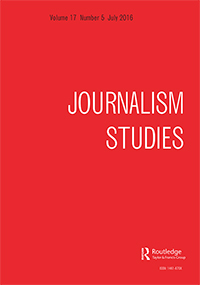Abstract
Germany could be considered a deviant case in the comparative study of the current transformations in media markets as publishers continue to be profitable despite painting a gloomy picture of the possibility of there being a ‘‘media crisis.’’ What is specific about the German case is the strong economic position and political lobbying of the publisher associations. Combining different sources of primary and secondary data, this article investigates five strategies of crisis management (‘‘the five Cs’’): media companies may react to the current changes by cutting down costs and creating new products. They may further try to influence the general framework conditions by complaining about their plight in public (discursive strategy), taking competitors to court (legal strategy) and wooing politicians through lobbying and campaigning (political strategy). The article concludes that the sustainable provision of journalistic value benefits the most from creative, productive strategies.

Brüggemann, Michael; Esser, Frank; Humprecht, Edda (2012): The Strategic Repertoire of Publishers in the Media Crisis. The “Five C” Scheme in Germany. In Journalism Studies 13 (5-6), pp. 742–752. Available online at https://doi.org/10.1080/1461670X.2012.664336.
